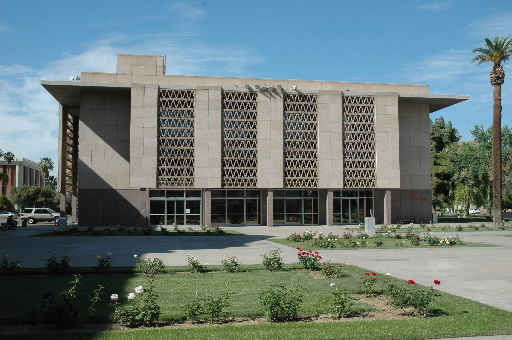PHOENIX — The Arizona House approved expanding, in law, rules for when child support must be paid — in a way some Democrats say is really designed to outlaw abortion.
Current law says courts, when making an initial award, can make it retroactive to the date when a divorce or support proceeding was filed. House Bill 2502, approved Monday by the Republican-led House, would require judges to go back farther, to the “date of a positive pregnancy test confirmed by a licensed health care professional.”
In sponsoring the bill, Rep. Matt Gress, R-Phoenix, cited his own experience growing up with a single mother.
“For us, this child support meant having electricity, having groceries, being able to afford clothes to go to school, gas for my mother to get to work,” he said. “At the end of the day, what this bill is about is helping families.”
But Rep. Athena Salman, D-Tempe, said she sees a hidden agenda. She said this is a tactic used by abortion foes who want to grant legal rights to the unborn.
Rep. Alexander Kolodin, R-Phoenix, said he didn’t understand the fuss. He said HB 2502 is designed to help women who can use the extra money for pregnancy expenses.
That argument didn’t impress Rep. Analise Ortiz, D-Phoenix.
“I really don’t appreciate sitting here and having to listen to men tell me what policies are best for mothers and children,” she said. Instead, Ortiz said, lawmakers should listen to organizations representing women like the National Organization for Women and the National Council of Jewish Women, which oppose the measure.
“Why?” she continued. “Because we see it for what it is.”
HB 2502 is not unique.
Members of Congress tried last year to force states to apply child support obligations to the entire time during pregnancy, with a provision for judges to make these orders retroactive to the date a doctor determined the child was conceived.
That measure did not survive. Gress is trying to make it a state requirement.
Ortiz asked whether his measure would create “fetal personhood.”
“This bill is designed to provide additional resources for women, for mothers, new mothers,” Gress responded. “So I’m not sure that concept has anything to do with this bill.”
Ortiz pursued the question. “It could establish that life begins at conception,” she told him. “This change in the law could have implications far beyond child support, potentially leading to an outright ban on abortion. Is that your intention?”
Gress insisted that isn’t his purpose.
“My intention is to provide families with resources to cover the costs incurred during pregnancy,” he said. “That does happen with outpatient visits and other preparations that come along.”
Ortiz said she’s not buying the argument about wanting to help women, given what she said has been the failure of the Republican-controlled Legislature to enact or expand other programs.
“If we really want to help mothers and children, let’s see policies on this (voting) board around universal health care, paid family and medical leave, an increase to the minimum wage, and safe and supportive housing solutions,” she said.
She also pointed to language in the bill that she sees as setting a bad precedent.
“When we start talking about prescribing rights into law that determines that a fetus is entitled to more rights than a pregnant person, we are setting the stage for an outright ban on abortion,” Ortiz said. “This is a strategy we have seen from anti-abortion advocates.”
Kolodin said HB 2502 can’t be about banning abortion. “State law already prohibits it,” he said.
He pointed to a territorial-era law, still on the Arizona books, outlawing the procedure except to save the life of the mother. Kolodin is among several lawmakers who say last year’s high court decision overturning Roe vs. Wade makes that law enforceable again.
Kolodin, an attorney, acknowledged that’s not how the Arizona Court of Appeals sees it. The judges there said a 2022 Arizona law banning abortions after 15 weeks of pregnancy takes precedence. That case is now before the Arizona Supreme Court. But Kolodin said he is confident the justices will overturn the appellate court ruling and once again outlaw abortion, with or without what is in HB 2502.
This isn’t Gress’ first effort to provide some legal status for an unborn child.
He also proposed HB 2501, which would have allowed women to claim the state child tax credit for the months they were pregnant. That measure has yet to be brought up for a roll-call vote.
Get your morning recap of today's local news and read the full stories here: tucne.ws/morning






